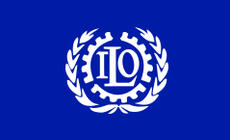Institution Background
The International Labour Organization (ILO) is devoted to promoting social justice and internationally recognized human and labour rights, pursuing its founding mission that social justice is essential to universal and lasting peace. The only tripartite U.N. agency, since 1919 the ILO brings together governments, employers and workers of 187 Member States, to set labour standards, develop policies and devise programmes promoting decent work for all women and men.
Evaluation Function
The ILO’s independent evaluation function supports the organization’s mission of advancing social justice and promoting decent work by providing evidence-based evaluations to inform decision-making, project improvement and organizational learning. The ILO’s Evaluation Office is responsible for managing the evaluation function and ensuring the proper implementation of the ILO’s evaluation policy. The Evaluation Office is also responsible for elaborating policies, setting operational guidelines and conducting quality control of decentralized evaluations of projects and programmes. It systematically monitors follow-up to project-level evaluation recommendations and provides support on impact evaluation through advisory services and quality appraisals.
Independence
The Evaluation Office's structure and modalities of operation is designed to protect its independence through dual reporting lines. The Director of the Evaluation Office reports to the ILO’s Director-General and provides an Annual Evaluation Report and the results of up to three high-level evaluations to the ILO’s tripartite Governing Body. The high-level evaluations are conducted by the Evaluation Office and topics may cover strategic or institutional issues, policy outcomes and Decent Work Country Programmes. The follow-up to their recommendations is monitored by the Governing and the Evaluation Advisory Committee which is chaired by the ILO’s Deputy Director-General. The Annual Evaluation Report includes a discussion on the implementation of the ILO’s evaluation strategy and a section that assesses the ILO’s overall effectiveness and results based on an annual meta-analysis of- on average - 65 project evaluations conducted in the calendar year by using a set of 29 performance criteria.
Annual reporting and evaluation schedules
Each year, the ILO undertakes an estimated 100 independent and internal project evaluations. The scheduling and oversight of these evaluations is the responsibility of the central evaluation office. The schedule is determined by the Criteria-based Integrated Evaluation Planning System. Additionally, on an annual basis the Evaluation Office presents findings and recommendations of independent high-level evaluations of ILO strategies, policies and Decent Work Country Programmes to the ILO Governing Body. All evaluation planned evaluations, completed evaluations, recommendations, lessons learned, good practices and management responses to evaluation recommendations are publicly displayed on a user-friendly
dashboard, called i-eval Discovery.
Quality assurance
All centralized and decentralized evaluations undergo comprehensive quality assessments by an external company. The results of quality assessments from decentralized evaluations
help inform the evaluation Office’s performance, as reported in the Annual Evaluation Report.
Evaluation use
At the organizational level, evaluation use is encouraged and explicitly identified in the ILO evaluation policy and evaluation strategy. Both of these governance-level documents make clear the need for evaluation to be useful in terms of informing results-based management and organizational learning. To support this endeavour, the ILO Evaluation Office’s communication plan – as aligned with the evaluation strategy – identifies appropriate communication tools, dissemination mechanisms and audiences for all evaluation activities should also be applied to effectively communicate evaluation results to enhance their use. This includes, for example, the proactive engagement of stakeholders, the development of customized products, following-up on the management response to evaluation recommendations and creating a communication and dissemination plan.
Joint evaluations
The ILO undertakes joint evaluations with partner organizations to assess the results of projects/programmes where ILO is one of several managing and implementing joint partners. Over the years, the ILO has conducted several joint evaluations with a variety of partners, such as the Government of the United States, International Organization for Migration and the Multi-Partner Trust Fund, to name a few.

